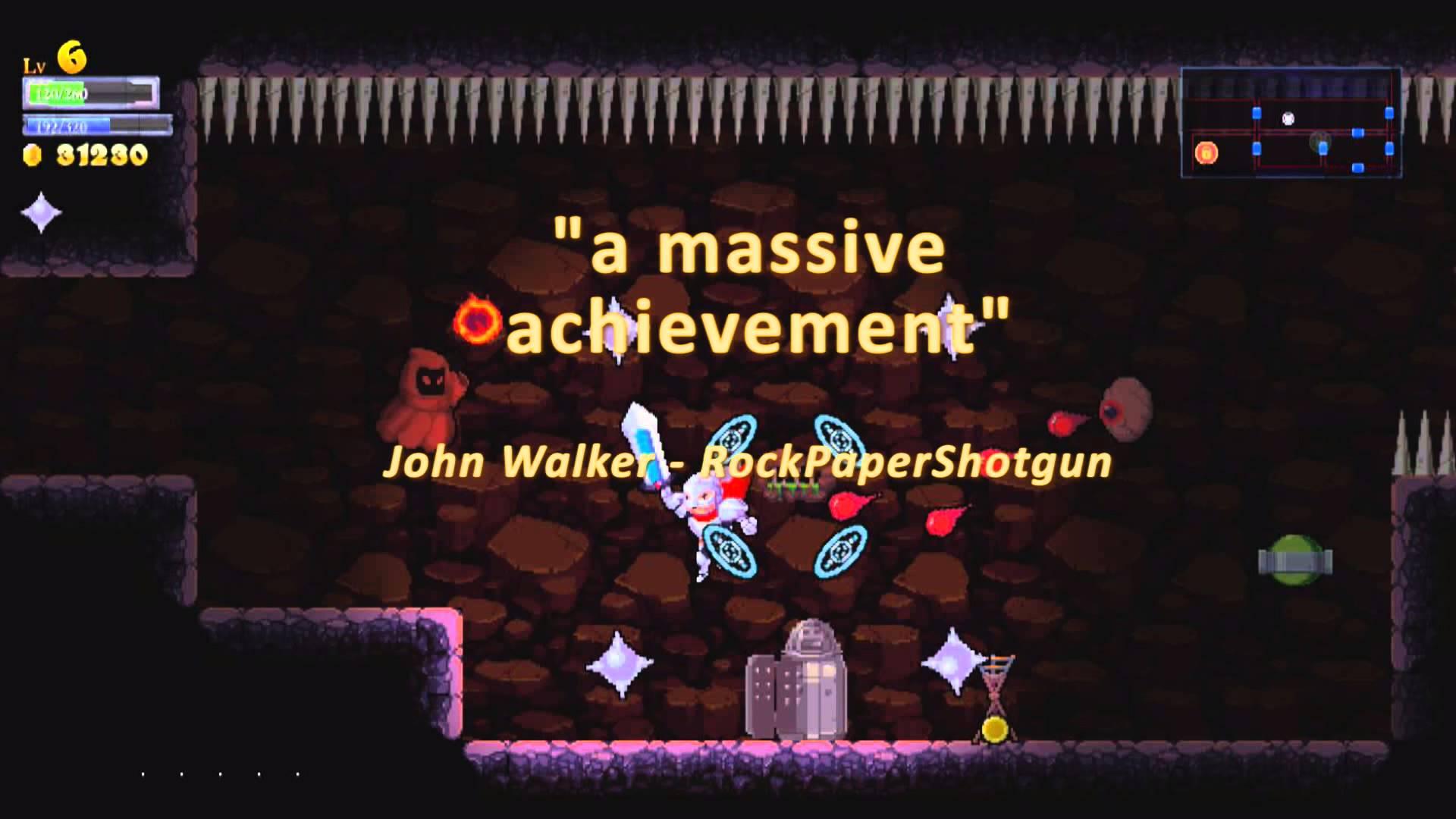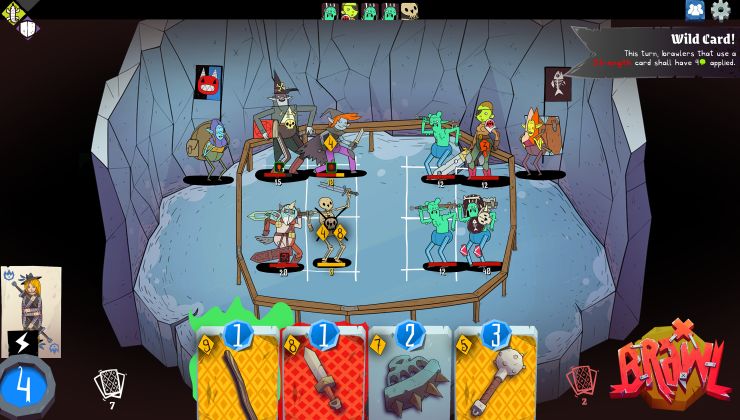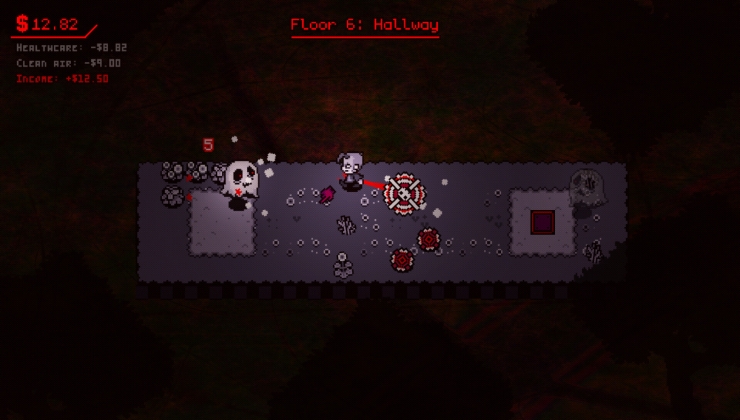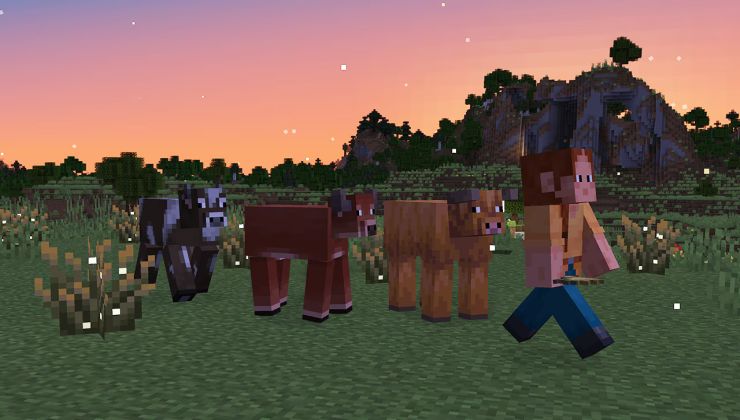Rogue Legacy, a rogue-lite from Cellar Door Games, that originally released in 2013 has now had the source code released. The game has Native Linux support and is rated Steam Deck Verified.
In the announcement on Twitter / X the developer noted they've been working with game porter and FNA developer, Ethan Lee, to make this happen who will be maintaining it going forward.

The game is not open source though, to be completely clear on that. It's source available under a custom license with certain restrictions, much the same as VVVVVV and is actually based on the license that Terry Cavanagh used for it. This is also only the source code, it does not include the assets - so you still need to own a copy of the game.
In their own announcement, Ethan Lee posted on Twitter / X that they intend to take on community contributions to it, and they're in progress on upgrading it to use SDL 3 that's currently in Beta.

Really great to see more developers open up the code for their older games. This way they can practically live on forever. It would have been even better if it was fully open source, but having it open like this is still a great resource for developer curious on what goes on behind the scenes to learn from as well.
Check out the GitHub for the source code.
You can buy the game from:
See the original trailer for the game below:

Direct Link
Not F/LOSS. :/
Source available, not open source.Correct. As stated in the article clearly.
I find it a bit upsetting that some of the opening comments to this news are negative. It's like someone offering you a free apple pie and turning your nose up and saying you prefer pears. Can we not just celebrate the awesome work CellarDoor and Ethan Lee put into this with a bit of gratitude? That it might help future developers learn, not to mention the modding potential?And it’s great for preservation! It’s a win.
Also loved the different traits the characters had.
Permission is granted to anyone to use this software and to alter it and redistribute it freely, subject to the following restrictions:So you can't use it as the basis for a commercial game, you can't try to pass off derivatives as official, and you need to give credit. FOSS would be nice, but this doesn't strike me as terribly onerous.
- You may not alter or redistribute this software in any manner that is primarily intended for or directed toward commercial advantage or private monetary compensation. This includes, but is not limited to, selling altered or unaltered versions of this software, or including advertisements of any kind in altered or unaltered versions of this software.
- The origin of this software must not be misrepresented; you must not claim that you wrote the original software. If you use this software in a product, you are required to include an acknowledgement in the product that this software is the copyright of Cellar Door Games and is based on the Rogue Legacy 1 source code.
- Altered source/binary versions must be plainly marked as such, and must not be misrepresented as being the original software.
- You must not distribute any materials from the game which are not included in this repo unless approved by us in writing.
- This notice may not be removed or altered from any source/binary distribution.
So, I'd be pretty comfortable with calling it OSS BY-NC-SA, despite it not adhering to one of the "official" open source licenses.
Last edited by emphy on 16 Oct 2024 at 6:59 am UTC
Looks to me that if the code were released under a creative commons license, it'd be [CC BY-NC-SA](https://creativecommons.org/licenses/by-nc-sa/4.0/deed.en).That violates number 1 and 3 of the [open source definition.](https://opensource.org/osd)
So, I'd be pretty comfortable with calling it OSS BY-NC-SA, despite it not adhering to one of the "official" open source licenses.
Creative Commons offers a lot of non-open source licenses.
Still an improvement though, so
Edit: also I've a problem with how little the open source foundation enforces its trademark.
Source available is a fully functional term and if you want to fit within the open source trademark you should fit the definition.
Last edited by LoudTechie on 16 Oct 2024 at 9:34 am UTC
I find it a bit upsetting that some of the opening comments to this news are negative. It's like someone offering you a free apple pie and turning your nose up and saying you prefer pears. Can we not just celebrate the awesome work CellarDoor and Ethan Lee put into this with a bit of gratitude? That it might help future developers learn, not to mention the modding potential?
I think this is because it feels like a downgrade compared to most game source code releases in the 2000s (where the GPL was typically used, or sometimes permissive licenses). It's much less common to see games have their source code released nowadays, let alone under OSI-approved open source licenses.
These custom licenses can also hinder the game's modding potential due to their terms, e.g. for source ports that are intended to replace the original executable.
These days, when I see a game's source code announcement, I basically assume it's under a proprietary license now :(
Descent 3 is the latest exception I can think of right now.
Last edited by Calinou on 16 Oct 2024 at 1:33 pm UTC
I find it a bit upsetting that some of the opening comments to this news are negative. It's like someone offering you a free apple pie and turning your nose up and saying you prefer pears. Can we not just celebrate the awesome work CellarDoor and Ethan Lee put into this with a bit of gratitude? That it might help future developers learn, not to mention the modding potential?
I think this is because it feels like a downgrade compared to most game source code releases in the 2000s (where the GPL was typically used, or sometimes permissive licenses). It's much less common to see games have their source code released nowadays, let alone under OSI-approved open source licenses.
These custom licenses can also hinder the game's modding potential due to their terms, e.g. for source ports that are intended to replace the original executable.
These days, when I see a game's source code announcement, I basically assume it's under a proprietary license now :(
Descent 3 is the latest exception I can think of right now.
I blame the reaction of the community to Meta's LLAMA.
People went wild about it and nobody clearly contested their "open source" claim, which resulted in the companies(rightfully) concluding that they can get comparable effects with proprietary licenses nowadays.
Last edited by LoudTechie on 16 Oct 2024 at 1:55 pm UTC
I find it a bit upsetting that some of the opening comments to this news are negative. It's like someone offering you a free apple pie and turning your nose up and saying you prefer pears. Can we not just celebrate the awesome work CellarDoor and Ethan Lee put into this with a bit of gratitude? That it might help future developers learn, not to mention the modding potential?
I think this is because it feels like a downgrade compared to most game source code releases in the 2000s (where the GPL was typically used, or sometimes permissive licenses). It's much less common to see games have their source code released nowadays, let alone under OSI-approved open source licenses.
These custom licenses can also hinder the game's modding potential due to their terms, e.g. for source ports that are intended to replace the original executable.
These days, when I see a game's source code announcement, I basically assume it's under a proprietary license now :(
Descent 3 is the latest exception I can think of right now.
Thank you so much for explicating that, I've observed this trend too, it's almost as if proper F/LOSS isn't cool anymore or is viewed as 'too extreme' or 'idealistic' now, so projects w/ restrictively licensed proprietary public code are settled for. I just really wish people would quit settling for less than their full freedom/liberty & rights as end-users (as are properly defined by the fsf's four essential freedoms & the OSI's Open Source Definition) being respected when – as you pointed out – we just had a golden age of fully F/LOSS, GPL'd source ports, but now we're backsliding. It honestly chafes at me to see people implying it's no big deal one, for example, can't create commercial derivative works using the engine, when if it wasn't for Doom allowing that we wouldn't have the brilliant Selaco today.
Last edited by Lamu on 17 Oct 2024 at 8:55 am UTC
withotu any explanation of what this function do and how, its an api from an game engine made inhouse or from a thirdy party.
looks like they used FNA so... its we really can see how it works.
We also cannot ignore [the elephant in the room](https://github.com/copilot). Most people don't want their code, writing, or artwork being used as AI training data.
Last edited by Talon1024 on 22 Oct 2024 at 10:02 am UTC











 How to set, change and reset your SteamOS / Steam Deck desktop sudo password
How to set, change and reset your SteamOS / Steam Deck desktop sudo password How to set up Decky Loader on Steam Deck / SteamOS for easy plugins
How to set up Decky Loader on Steam Deck / SteamOS for easy plugins
See more from me